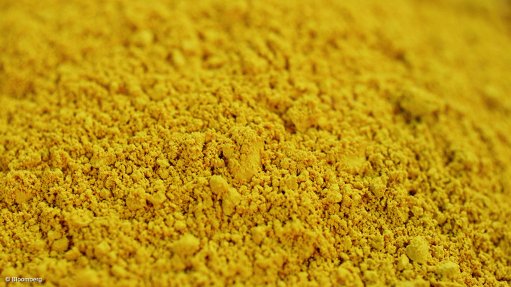
Photo by: Bloomberg
PERTH (miningweekly.com) – The Western Australian uranium sector would capitalise on Energy Resources of Australia’s (ERA’s) decision not to proceed with its Ranger 3 Deeps underground project, in the Northern Territory, says Mines and Petroleum Minister Bill Marmion.
ERA in June announced that it would not proceed with the feasibility study for the Ranger 3 Deeps mine, citing economic challenges and uncertain market conditions.
Speaking at a uranium conference in Perth, Marmion said on Wednesday that the curtain call for the Ranger 3 Deeps project would be a spark for the Western Australian uranium industry.
“The Ranger announcement is certain to prompt uranium buyers to take a fresh look at potential Western Australian suppliers.”
Marmion pointed out that more than A$300-million has been invested in uranium exploration in the state since the government lifted Western Australia's uranium mining ban in 2008.
“That has placed us in a position where annual exports from the state's four advanced projects could reach A$1-billion by 2020, as long as uranium prices rise to economic levels.”
There are currently four uranium projects under development in the state – the Wiluna, Yeelirrie, Kintyre and Mulga Rock projects.
"It is [expected that] construction of these mines could employ more than 1 500 people, with 500 full-time employees required [when the mines are operational],” Marmion said.
The Minister noted that the largest drivers of uranium demand in the near future would be India and China, as they pushed to reduce their air pollution and provide alternatives to coal-fired power stations.
“China started building three reactors in 2014 and four so far in 2015, with another three commissioned last March. The World Nuclear Association says 26 Chinese reactors are now under construction, and that is good news for Western Australia's uranium export potential."
Rising demand was expected to result in a global net uranium deficit by 2020, the Minister pointed out, with production of new uranium being delayed by the current low prices for yellowcake.
Advisory firm Argonaut metals and mining research analyst Matthew Keane told the conference that the tipping price of $70/t, at which point most uranium projects would be considered profitable, was not far off.
He pointed out that the nuclear reactors currently planned would require some ten-million pounds of uranium a year. While the introduction of new mines since 2014 has brought some 20-million pounds a year of uranium to the market, between eight-million and ten-million pounds a year have been lost due to mine closures or decreased production, as uranium prices fell.